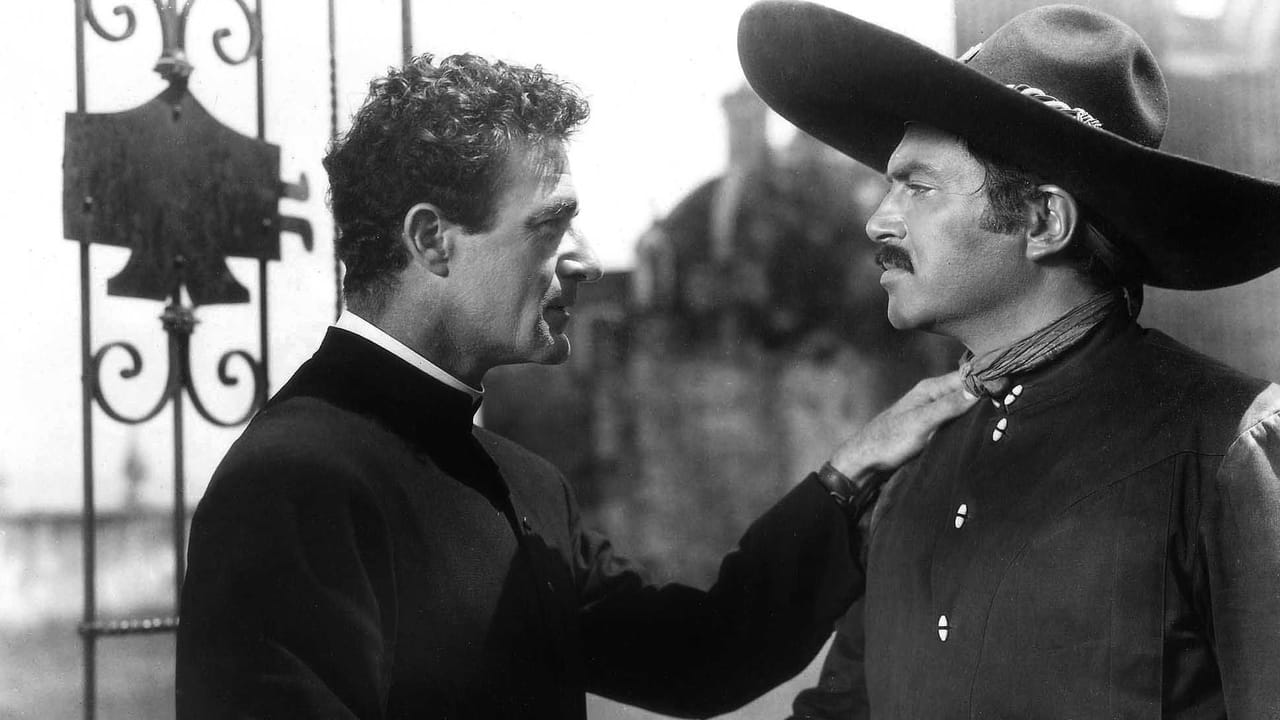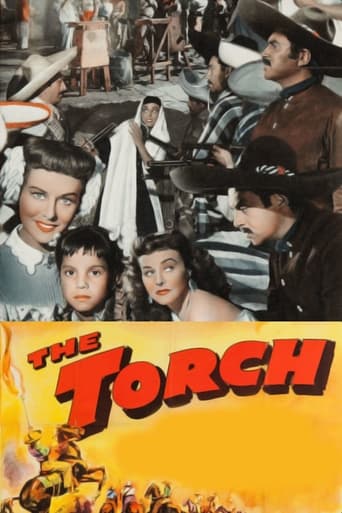



Too much of everything
I gave it a 7.5 out of 10
How sad is this?
Best movie ever!
You have to have like zero sense of Mexican history and culture not to understand the multiple levels of thematic development and narrative going on in this film. And unfortunately some of the reviews on this film evidence just that lack of sense.The Mexican revolution (roughly 1910-1920) was one of the most confusing - and bloodiest - in the annals of national political developments in the West. Perhaps only the Spanish Cuivil War could equal it for ferocity, and that only lasted less than half as long. An entire generation was shaped by the slaughter but also by the struggle to establish a national identity at last committed to some principle of legitimate democratic governance. The legacy - and the problems -continue.The leading male, General Reyes (based loosely on Zapata), is a complex character; he is hardly a saint - he passes judgment on a wealthy businessman (who has raise the prices of necessities to prevent their purchase by the poor) and has him executed. Is he authoritarian murderer and thief? Or is he trying to establish and enforce a new law? Can this be determined in a time of revolution, when the very question of what constitutes legitimacy is at issue? Yet we are given to know that he can love individuals - and also the people as a whole, when an influenza epidemic breaks out and he orders his men to help the stricken, even at the risk of their own lives - and his.The relationship between Reyes and the wealthy landowner's daughter Maria will probably not make much sense unless you understand that Mexican culture is profoundly Romantic in the 19th Century usage of that term. Both Reyes and Maria are fiercely struggling to determine how to maintain their individuality while pursuing a courtship threatening to engulf them both. Their resolution - allowing the revolution to seal their fates together - is pure (Percy) Shellyan. (This is a very tough-minded romance, and only a true Romantic would know what that means. The closest Hollywood came to it is Gone With The Wind which this film resembles, as a rather compressed variant at 80 minutes - and maybe Casablanca.) As to the film-making - it is glorious - absolutely beautiful cinematography, exquisitely taut direction, brilliant performances by the leading actors. The editing is a bit rugged, but it may have to be. I was at first confused by the influenza epidemic sequence - it is all smoke, darkness, sudden jump cuts and time ellipses - until I realized that this was as intended. Director Fernandez knew that his audience wanted a battle to decide the fates of the characters, but also recognized that this would spoil the romance. So the epidemic displace military engagement; nonetheless, it too is a battle, a battle to survive, and so must be both confusing and threatening, involving the loss of life and the definition of the personalities at risk and how they respond to it.That is intuitive film-making, and very risky, and brilliant if pulled off well. And I think it is. The ending, for me, was emotionally staggering, but only Reyes' and Maria's collective endeavors to survive the epidemic - and help others during it - could properly prepare me for it.An absolutely knockdown film. The existing prints - the one at Internet Archive I saw was a Mexican television edit, and I've read of worse - are not great, and maybe lacking episodes. Still what is available makes proper claim that this ought to stand as a (perhaps minor, but necessary) classic of commercial film-making. God knows what was going through RKO's Hollywood brains when they decided to make a Mexican film by a Mexican director (in English, with US actors), but thank god they did.(BTW influence: Undoubtedly seen by Sam Peckinpah who hired Fernandez to play Mapache in the Wild Bunch - note certain character similarities. Probably also seen in Europe, where it would have earned more respect than in the US, I suggest Sergio Leone may very well have been a fan, note similarity of certain shots, certain relationships, certain characters, to those in The Good, The Bad, The Ugly.)
View MoreEl Nace del Amor mixes romance and melodrama with historic and military drama set in a late 19th century Mexican town. The story centers on a few very strongly realized characters - Maria Dolores (Paulette Godard) Jose Juan (Pedro Armendariz), Father Sierra (Gilbert Roland) and Dr. Stanley (Walter Reed). Maria Dolores is a headstrong and lovely young upper middle class woman who is engaged to an American doctor (Reed) who has settled in the town. Father Sierra is a community-leading priest and Jose Juan is a revolutionary general who brings unsolicited agrarian reform to the town and falls in love with Maria Dolores.Jose Juan (who is remarkably well-played by Armendariz) and Maria Dolores are the most dramatic and unpredictable characters of the lot. Father Sierra, who has known the General since they were both young, makes it clear that Jose Juan is a principled man, but his bloody revolution and generally aggressive and angry demeanor do not seem to sit well with this representation. Maria Dolores is intelligent, intuitive, passionate and virtuous, but also inexperienced and a bit naive. Although the revolutionary occupation of the town and the calamities that beset the place at the time comprise most of the threads of the nicely woven plot, the romance between Dr. Stanley, Maria and Jose Juan is the fundamental story in El Nace.Goddard's performance is not one of her best, but she does an admirable job of playing a woman who was probably about half her age (Godard was 48 when the film was released).Filmed in Mexico and shot in English with Spanish subtitles, veteran Mexican actor Emilio Fernandez's directing and cinematography are surprisingly superb. Each shot is very nicely composed and the camera usually makes up for occasional weaknesses in the acting and the script. There are a few problems with the editing which do not really detract from the value of the story. The few war scenes, though they do not approach the blood and guts realism of today's military adventures, are startlingly vivid and a bit scary.Despite my praises, the film has quite a few tedious moments which are important from the perspective of character development, but which do not stand up to the test of time.Interesting from a cultural and historical perspective, and as a well-made low budget early independent, El Nace del Amor is recommended for film buffs and students of cinematography. While it is hardly a classic, it is a good story well told.
View MoreThis absorbingly told story is a real tribute to the award-winning director Emilio Fernandez. Fernandez was awarded top prize at the 1946 Cannes festival for Maria Candelaria -- he also was recognized over the years at festivals in Venice, Berlin, Moscow, San Sebastian and in his native Mexico. The photography and editing are stunning - the film is a visual masterpiece from beginning to end. The story couples Fernandez' own "revolutionary" consciousness with a compelling humanitarian outlook. The acting is on cue by the leads -- and the supporting players have fantastic faces and genuine authenticity. This was no "quickie" as other IMDb users claim, but a Class A production throughout. Buy this film. It is out on DVD and well worth every penny. The only real drawback is Paulette Goddard's looks. At 39, she is simply too old for the part (at times she reminded me of "Baby Jane Hudson"). Otherwise, Goddard gives one of her best performances -- her transformation from a temperamental, spoiled, privileged woman to a real human being is well played. This film needs to be re-discovered!!
View More.I saw the film when I was 14 years old. It was on TV in the mid fifties. I hardly remember the story, but it was about a Pancho Villa type revolutionary who decides to retreat from the town wherin dwells his lady-love. The images from the film have remained crisp and clear in my mind, both sight and sound after all these years, moreso than any film I have seen since. Most well remembered was the opening scene in the glass blowing shop, and the final retreat from the city at the film's end. This is not a very good reviw of the film, just an old fellow's happy remembering. Sadly, I don't know anyone else who has seen it, and I have not been able to find the film on tape.
View More